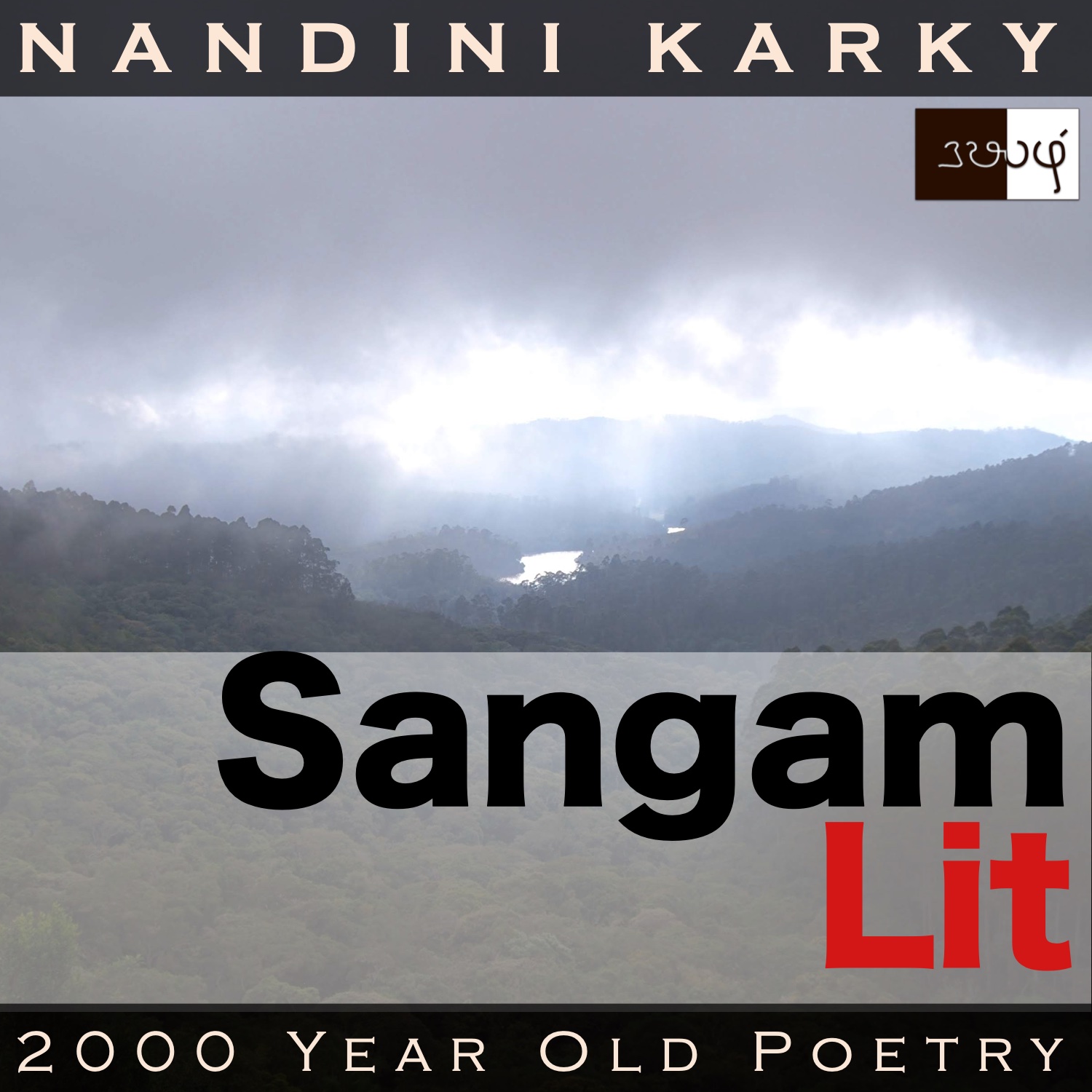Podcast: Play in new window | Download
Subscribe: Apple Podcasts | Spotify | Amazon Music | Android | iHeartRadio | TuneIn | RSS | More

In this episode, we understand the angst in a lady’s heart as the seasons change, as depicted in Sangam Literary work, Kurunthogai 314, penned by Peri Saathanaar. Set in the forests of ‘Mullai’, the verse speaks in the voice of the lady to the confidante, in response to the confidante’s words that the lady must bear better with the man’s parting.
சேயுயர் விசும்பின் நீர் உறு கமஞ்சூல்
தண்குரல் எழிலி ஒண் சுடர் இமைப்ப,
பெயல் தாழ்பு இருளிய புலம்பு கொள் மாலையும்,
வாரார் வாழி!-தோழி!-வரூஉம்
இன் உறல் இள முலை ஞெமுங்க-
இன்னா வைப்பின் சுரன் இறந்தோரே.
‘The rains are here but he comes not’ cries a voice in this verse. The opening words ‘சேயுயர் விசும்பின் நீர் உறு கமஞ்சூல்’ meaning ‘pregnant with water in the soaring high skies’ places a rain-bearing cloud and a pregnant belly in parallel. In ‘புலம்பு கொள் மாலை’ meaning ‘an evening filled with loneliness’, we understand that it’s not only the rainy season but also the evening time, a period of pain for those separated in love. Our assumption about the separation comes true in the word ‘வாரார்’ meaning ‘he comes not’ indicating that a parted beloved is not back home yet. Ending with the words ‘இன்னா வைப்பின் சுரன் இறந்தோரே’ meaning ‘he, who left to the misery-filled drylands’, the verse evokes our empathy.
Rains, evening and missing man – Perfect recipe for trouble in the lady’s heart! The context reveals that the man and lady were leading a happy, married life when the man parted away to gather wealth. Before he leaves the lady, he promises her to be back before the rains start. The lady languishes in his absence and the confidante tries to cheer her saying she must take care of her health and bear better with the man’s separation. To the confidante, the lady says, “In the distant, high skies, pregnant with water, the moist and loud clouds, with a bright light flashing, descend with an intention to pour down in the dark and lonely evening, and even now, he comes not, my friend, may you live long! To enfold my flourishing, sweet, young bosom, he, who parted to that drylands, filled with suffering, comes not!” With these words, the lady expresses how impossible it is for her to bear with the man’s parting now that the rains have arrived too!
A weather phenomenon that brings much joy to many a farmer is the harbinger of sorrow for the lady! The lady starts by talking about the rain clouds high in the sky, brimming with water that it has nurtured in its dark belly. These clouds then, speaking in a strong voice as thunder and flashing lightning, pour down in the evening time, the lady says. Even at such a time, the man doesn’t return home in order to embrace her young bosom, she cries aloud to her confidante, and concludes by thinking about the place the man left to, the drylands, the abode of suffering, according to her!
Yet another wail by a lady about a man who has not returned in the promised time. As always I hope the confidante has soothing words to render to her friend and wipe the tears that pour down like the rains on that sad evening. My mind turns to the place the man has left to. Why do Sangam men have to cross these miserable drylands when they want to gather wealth? Where do they go and what do they do? That’s a mystery I hope some of the ‘Puram’ or ‘Sangam literature on outer life’ will solve. Until then, let’s keep these questions alive and turn our focus to those in today’s world, missing a beloved. Here’s wishing that their faces would light up soon with the safe return of the parted!




Share your thoughts...